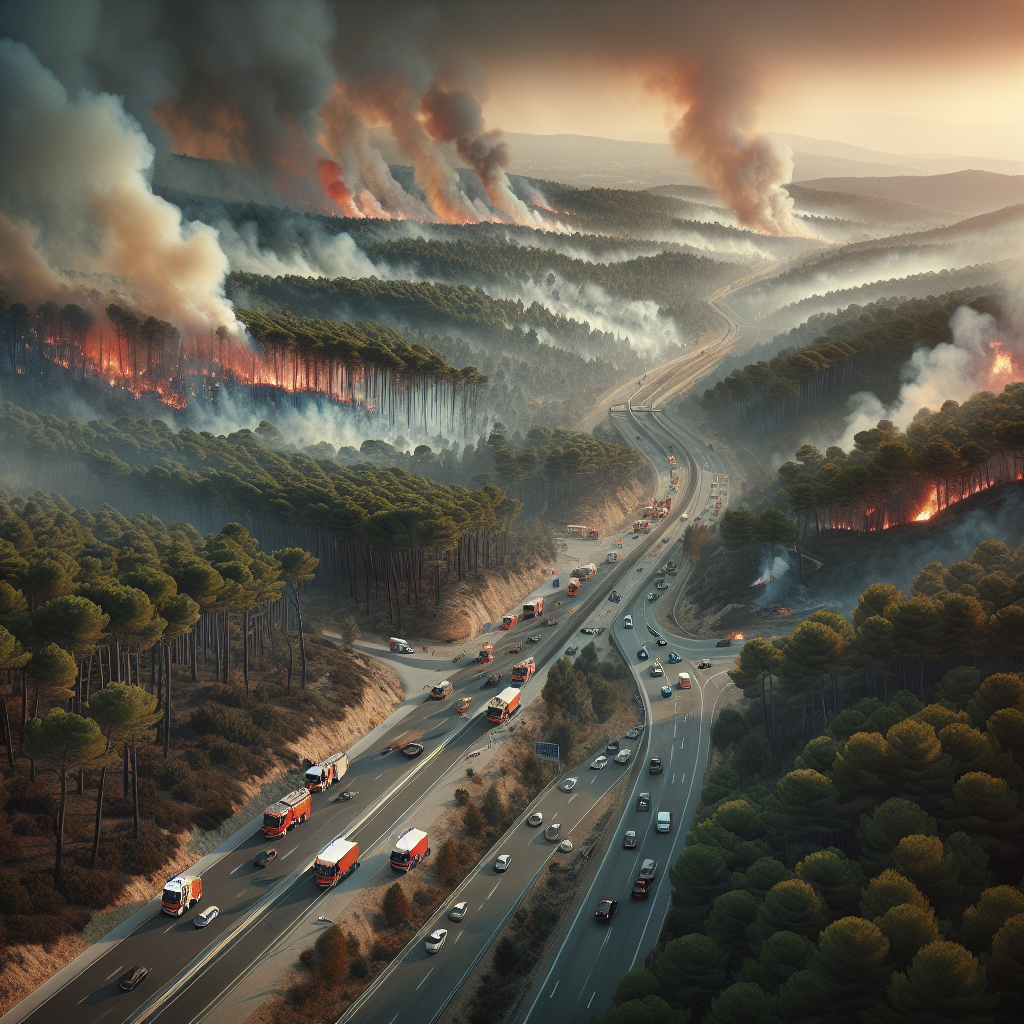Listen to this post: Israel Wildfire Burns 5,000 Acres – Evacuations Underway
Israel Wildfire Burns 5,000 Acres – Evacuations Underway
Summary
A fast-moving wildfire has scorched an estimated 5,000 acres of land in central Israel, prompting widespread evacuations and triggering an intensive emergency response. The massive forest fire, which ignited earlier this week, has quickly spiraled out of control due to high temperatures, dry vegetation, and strong winds, putting lives and properties at immediate risk.
Firefighters from across the country have been deployed, with aerial support units dousing flames from above in an effort to contain the blaze. Several rural communities near the affected forest areas have already been evacuated as a precaution, including residents of small towns and agricultural settlements. Authorities have also issued warnings for neighboring urban areas, should the fire continue to spread.
Residents reported scenes of thick smoke blanketing roads and skies turning orange as the fire advanced. Witnesses on social media showcased dramatic footage of firefighters working around the clock, while helicopters dropped water to slow the fire’s path.
Officials say that the source of the fire is still under investigation, although preliminary indications suggest it may have originated from human activity—possibly agricultural or recreational. Emergency protocols have been enforced, including the closure of several roads, while Israel’s Fire and Rescue Services remain on high alert.
Despite significant efforts, the fire’s scope remains concerning due to difficult terrain, shifting wind patterns, and the sudden escalation of fire behavior. Public health authorities are also cautioning individuals with respiratory conditions to remain indoors due to dense smoke inhalation risks.
Analysis
Wildfires are not new to Israel, but the scale and velocity of the recent outbreak reflect climate-linked extremes that are becoming alarmingly frequent. Experts have raised concerns about growing fire risks in Mediterranean climates like Israel, where hotter summers and unpredictable weather patterns are increasing susceptibility to such disasters.
According to Israel’s Environmental Protection Ministry, climate change is intensifying forest fires across the country. The last time the country saw a wildfire of similar magnitude was during the Carmel forest fire in 2010, which tragically claimed over 40 lives. This latest event serves as another stark wake-up call for environmental and emergency policy reform.
“The frequency of wildfires in Israel has doubled over the past decade, largely due to prolonged heatwaves and changing precipitation cycles.”
Dr. Yaron Zinger, Climate Scientist at Ben-Gurion University
Key factors fueling the wildfire crisis in Israel:
- Prolonged droughts and record-high summer temperatures
- Accumulated dry vegetation in unmanaged forests
- Urban encroachment near vulnerable forest zones
- Insufficient firebreaks and early detection systems
Government officials are facing mounting pressure to revisit outdated forestry management protocols and increase investment in wildfire resiliency infrastructure. There’s also talk of enhancing inter-agency cooperation, incorporating satellite surveillance, and conducting seasonal prescribed burns to reduce excess brush.
Environmentalists argue that public education is equally vital. A significant percentage of wildfires are sparked unintentionally by human activity—from unattended barbecue pits to poorly discarded cigarette butts.
With over 5,000 acres already lost and containment still not guaranteed, the long-term ecological and economic consequences could be severe. Reforestation efforts could take years, and the destruction of flora and fauna may lead to irreversible biodiversity loss in certain pockets.
“This wildfire isn’t just a natural disaster—it’s a policy failure. Without proactive forest management, we’ll see more of these cases annually.”
Noa Bar-Am, Environmental Policy Analyst
While the source is still being confirmed, authorities encourage the public to remain alert and adhere strictly to evacuation instructions and fire safety guidelines.














